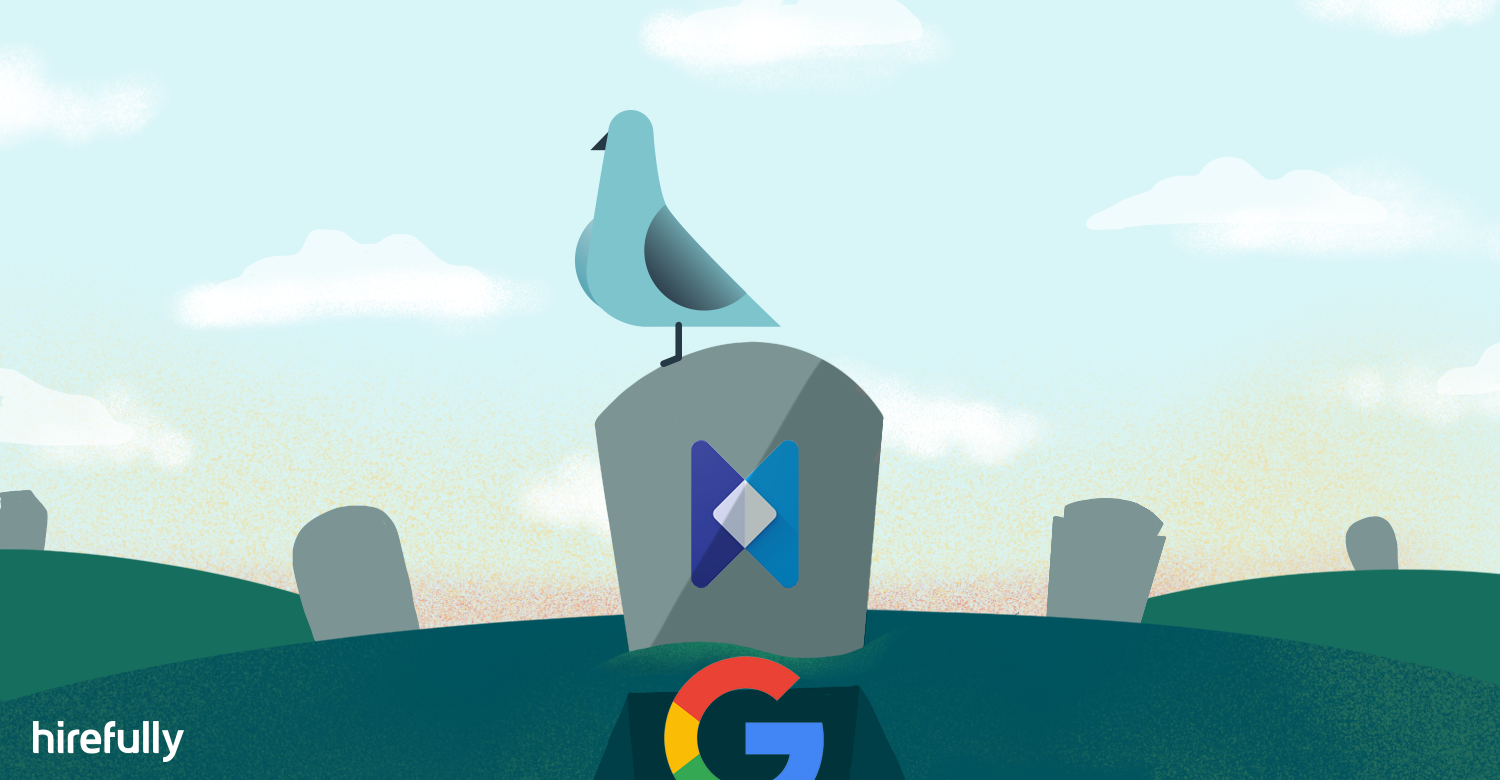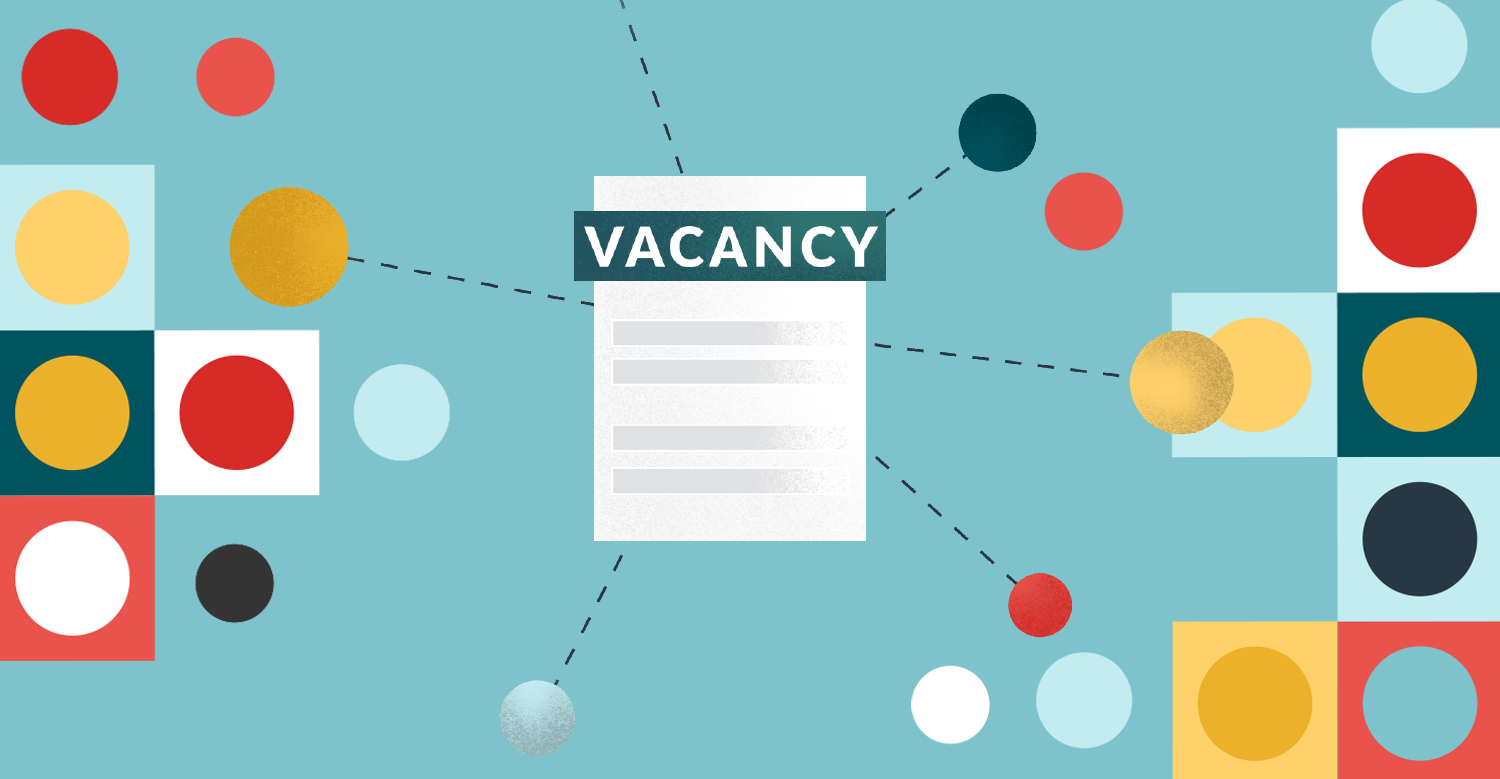
Last week, Google Hire announced its retirement. For those who don’t know, Google Hire is the tech giant’s first foray into the recruiting world. It was an applicant tracking system (ATS) for SMBs that synced with all of Google’s capabilities. This was supposed to be the pinnacle of streamlined recruiting for G Suite-powered organizations. Despite positive reviews, Google is throwing in the towel and will instead invest in “other products in the Google Cloud Portfolio.”
That’s right, not even Google is confident they can solve the hiring challenges that plague SMBs. Not. Even. Google. If this isn’t enough proof that hiring is best left to humans, not software, then I don’t know what is.
Recruiting technologies claim to be your secret to better hiring. What, exactly, does this mean? Does it improve your candidate records? Does it manage your interview process? ‘Better’ is a relative term. To be better means you are more capable than someone else. When it comes to hiring, it depends on having a unique advantage. If everyone subscribes to the same software, then everyone improves collectively, there is no competitive advantage for any one player.
Consider the restaurant industry. From the perspective of the diner, a great dining experience at an upscale restaurant goes something like this:
The Maitre D greets you, takes your coat, and walks you to your table. Perhaps he pulls out the chair and places a napkin on your lap. You’re offered a choice of waters, and you choose sparkling because you’re feeling fancy tonight. You order your meal, it arrives, you eat it. Obviously, there’s dessert.
You try to avoid entering a food-coma as you wait for the bill. You review it, quickly, so as to not offend the server. You take out your credit card and tap the machine, only to realize that Interac has failed to improve a flawed UX that shows you can Pay-by-Tap, even though your bill is well-over the $100 limit. You insert your card and choose a tipping option while wondering why and when ‘18%’ replaced the ‘15%’ option. You enter your PIN and wait for your receipt. You leave satisfied and feeling full.
This smooth dining experience is akin to the kind of recruiting experience you should strive to provide for your candidates. The likes of Lever, Greenhouse, and formerly Google Hire help achieve effective communication and speed that’s crucial to successful recruiting in a talent-scarce market. In other words, applicant tracking systems offer recruiters the kind of procedural rigor that it takes to deliver a dining experience with fast service, warm food, and no errors on the bill.
What’s often misunderstood is that all the speed and rigor in the world will not improve your hiring if you focus on the wrong candidates. A bad dining experience can undoubtedly ruin your evening, but the reason people love their favourite restaurants is not because of the process, it’s because of the food.
Imagine your favourite restaurant shares their food suppliers, chefs, and recipes with all the other restaurants. Is your favourite restaurant still really your favourite? Or would you just as happily get an identical *insert your favourite dish here* from the closest restaurant? As a restaurant owner, recipes are your competitive advantage.
Using algorithms to scan and rank your applicants is the equivalent of giving away your recipes. You relinquish control in favour of a standardized perspective. If an algorithm recommends a candidate to you, it probably recommends the same candidate to every other employer with the same prerequisites. Quality of the candidate aside, your odds of hiring the candidate have not changed. Rather, the price of the candidate (the salary) has been artificially increased by the inflated demand.
The bigger problem with using algorithms in the hiring process is that there is no proof they work. If the algorithm isn’t simply keyword-screening, then it usually relies on candidates’ results from psychometric or cognitive tests. The so-called science behind these assessments sits on top of a loose correlation between certain traits and performance. It makes recommendations about a person’s ability to succeed, without accounting for the person’s motivation, the team, and in some cases, the job itself.
Team building is personal and it’s situational. The best hire for your team is not necessarily the best hire for mine. Smart hiring requires Authentic Intuition, not Artificial Intelligence. It demands ditching resumes and keywords in favour of chemistry and attitude. Simply put, it requires a human touch.
Good recruiters are well-versed in psychology and sociology. They are intimately familiar with your team, business and industry. They have the empathy to explore potential and passion, and the finesse to sell and consult. But the reality is, good recruiters are hard to come by. That’s why the best internal recruiters earn salaries comparable to software engineers.
Hirefully is recruiting on-demand for your high-growth company. We manage your inbound recruiting, from writing job descriptions to closing offers, and source talent as needed. We’re a small team that prefers to direct our energy to building great teams, not business development. It’s important that we build lasting relationships with partners who understand the importance of team building. This mentality is why we share hiring risks with you; ask us about our extended guarantee period.
We have three spots available on our full-service roster. If you’re tired of bad interviews, long time-to-fill metrics, or you simply need recruiting help but don’t want someone on the payroll, we should chat. I promise you won’t be disappointed.

